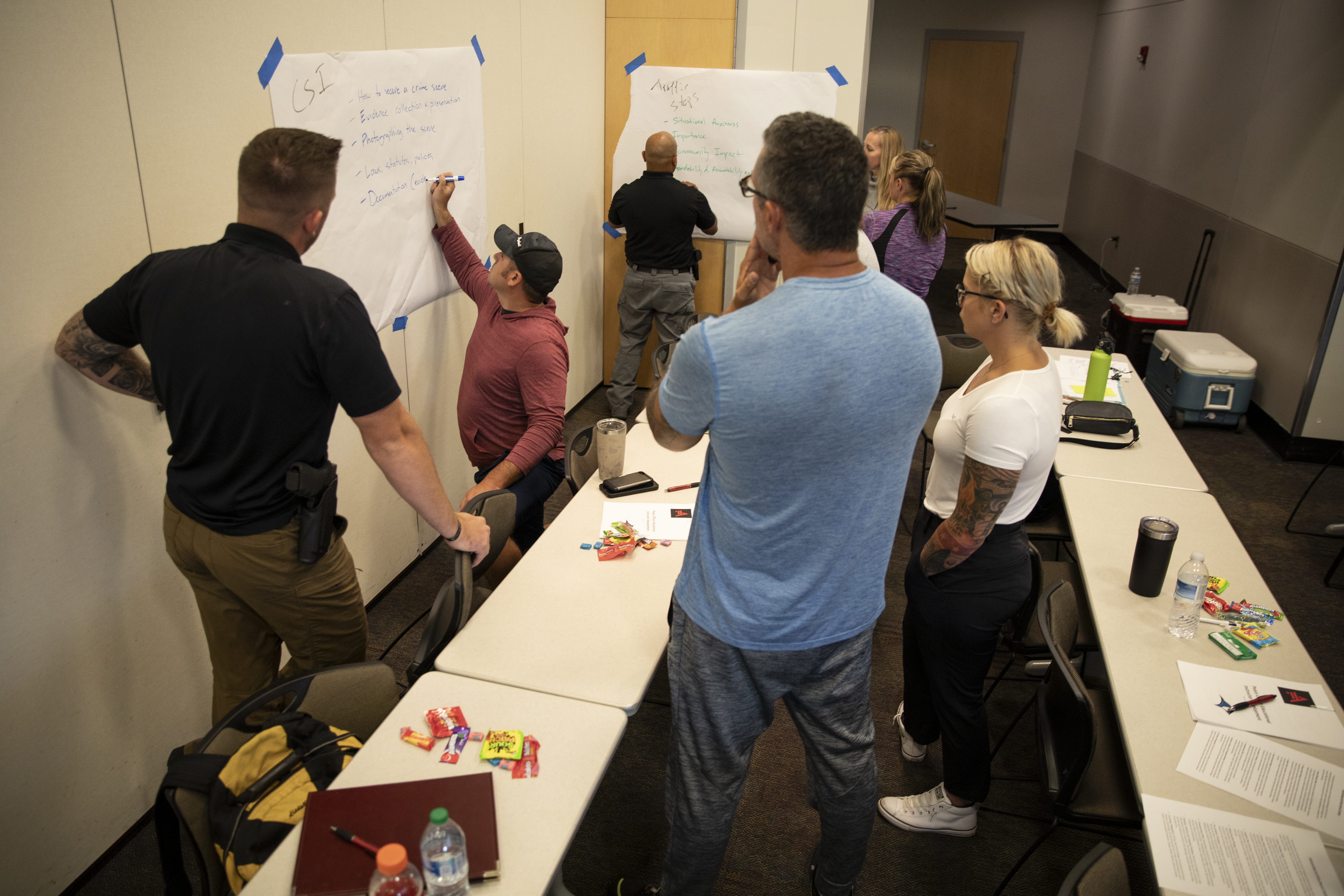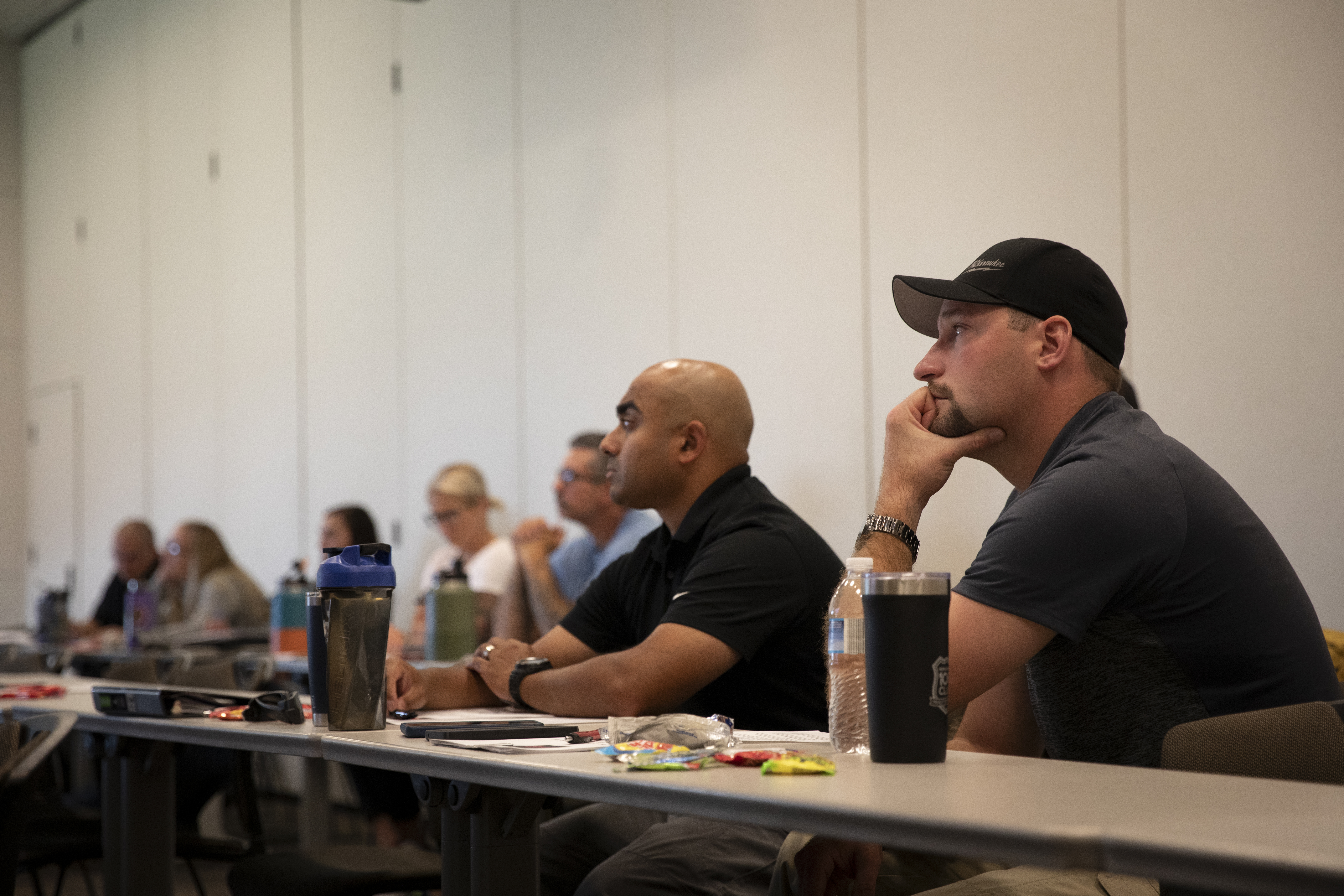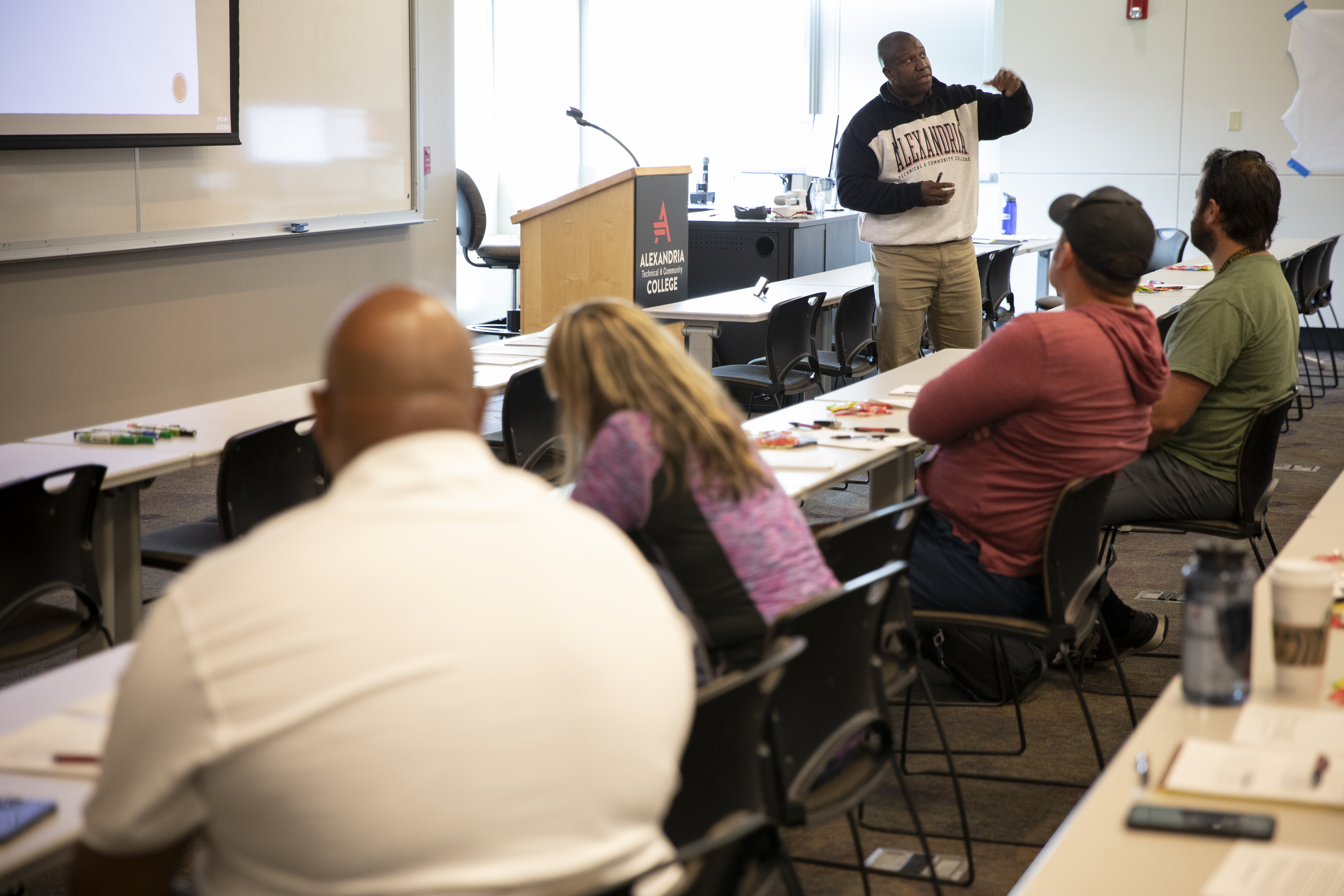The Police Training and Education program hosts a two-day instructor development course for Minnesota officers.
The course was developed in alignment with the Minnesota Peace Officer Standards and Training Board, and provided a thorough understanding of psychomotor skills (movement tasks that use both cognitive and physical operations), covered fundamental peace officer concepts, and the effect of vision and visual cues on practice.
“The Peace Officer Instructor Development Course aimed to equip rural and metropolitan peace officer instructors with new educational tools and skills while addressing cultural competency and communication in instructor development,” said Dr. Shawn Williams, associate dean of educational services for Police Training and Education, and Alexandria College's PPOE Coordinator.
The 24 attendees from 14 different police departments and sheriff's offices across Minnesota participated in lectures and break-out sessions. The material they learned emphasized ensuring safety for adult learners and providing practical tools to assess various learning styles. Participants now have the knowledge and skills to improve their current psychomotor skills programs and facilitate more efficient and effective student learning in their departments.
The participants of the training can now go back to their respective agencies and be able to develop and deliver lessons using a variety of teaching techniques, including lectures, discussion, hands-on activities, and multimedia, create assessments that accurately measure learning outcomes and provide meaningful feedback to learners, use technology and other instructional aids effectively to enhance learning, and develop and maintain a professional demeanor, ethical conduct, and practical communication skills in the classroom.
"Empowering educators for proficient law enforcement instruction encapsulates our mission, fostering community and quality in training," Williams said.
Recent News:
-
Spring 2026 Lecture Series Kicks Off Tuesday, March 24 with Tips for Living Stress-Free.
February 23, 2026 | 3:43 PM -
SkillsUSA Local Competition Results
February 17, 2026 | 1:29 PM -
Faculty Embrace Equity-Centered Teaching Through Professional Development
February 13, 2026 | 12:49 PM




